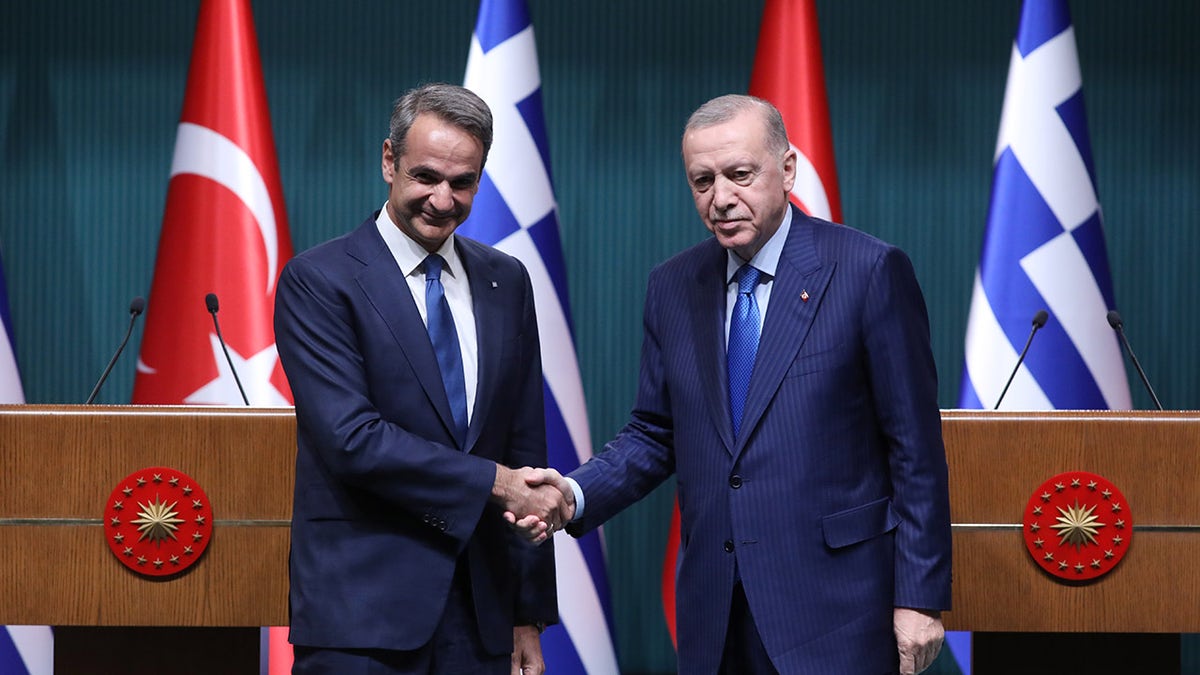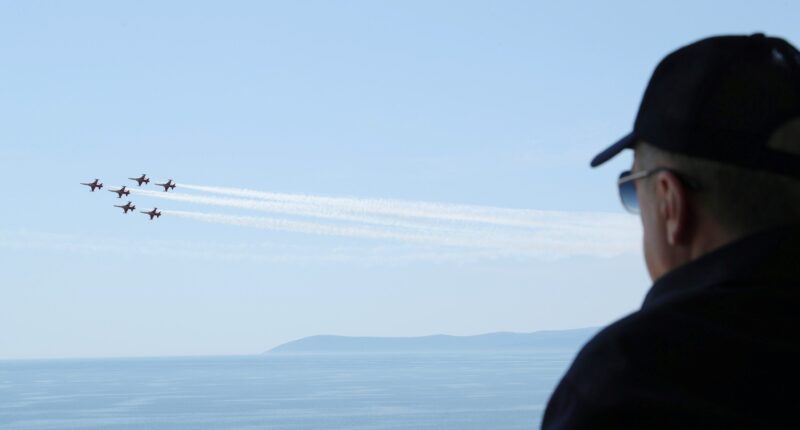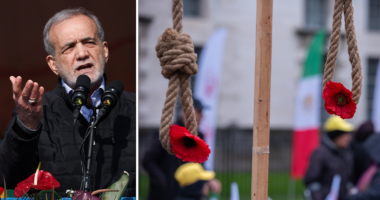Earlier this month, Turkey relaunched military exercises in the Black, Mediterranean, and Aegean Seas under the banner of “Blue Homeland.” Greece perceives this as a show of force that has stirred up longstanding maritime disputes between the two nations. The Greek Foreign Minister, Dendias, described Turkey’s actions as a new form of neo-imperialism and neo-Ottomanism. He highlighted Turkey’s territorial claims, particularly its assertion that half of the Greek islands in the Aegean Sea belong to Turkey.
The escalating tensions between Turkey and Greece have caught the attention of international observers, with concerns growing about a potential military conflict in the region. The geopolitical implications of these disputes extend beyond the two countries directly involved, impacting broader regional stability and alliances. The situation has once again put the spotlight on the complex web of historical grievances and modern power dynamics in the eastern Mediterranean.
A photograph capturing a moment between President Donald Trump and Turkey’s President Recep Tayyip Erdogan at a NATO summit in Brussels serves as a poignant reminder of the intricate relationships between world leaders and their impact on geopolitical affairs. The body language and interactions between these two leaders hint at the delicate balance of power and diplomacy that govern international relations.
“And sometimes they even go further. They claim that Crete, a huge island with very important NATO presence and an American base in Souda – again, should belong to Turkey.”
The defense minster said Greece’s tense relations with Turkey have made its defensive posture in NATO unique because it has forced Athens to be on top of its defense spending, an issue that has once again become a top matter of discussion in the NATO alliance due to Trump’s push to have all nations meet a 5% GDP spending limit, up from 2%.
The latest NATO spending figures released in June 2024 show Greece was the fifth-highest spender on defense in the alliance, spending more than 3% of its GPD, while Turkey came in 18th and spent just over 2% of its GDP on defense.

ANKARA, TURKEY- MAY 13: Prime Minister Kyriakos Mitsotakis (L) of Greece shakes hands with President Recep Tayyip Erdoğan of Turkey during a press conference after their meeting on May 13, 2024 in Ankara, Turkey. (Yavuz Ozden/ dia images via Getty Images)
Dendias said European nations need to collectively agree on how they view security threat levels and the importance of defense spending.
“Regardless of President Trump’s position on 5%, it’s an internal issue and needs to be resolved,” Dendias added.
“The biggest threat is countries that do not abide by international law and do not abide by international law of the sea. Countries that believe that borders [are] something that you can disregard, that treaties and international treaties should work only if it’s to your advantage,” Dendias said. “That is the biggest threat to the whole world, not just Greece.”
Additional questions to Dendias about President Trump’s recent comments on his refusal to rule out military intervention in acquiring Greenland and the Panama Canal were not answered.
The Turkish embassy in Washington, D.C. did not respond to Fox News Digital’s questions but instead pointed to a statement issued by the Turkish Minister of National Defense, Yaşar Güler, who ahead of the “Blue Homeland” exercises said, “Our country, located at the very heart of a region surrounded by conflicts and disputes, consistently emphasizes its commitment to international law and peace in preventing tensions and resolving crises.
“We approach the development of our relations with our neighbor Greece within this framework and take significant steps toward resolving problems,” he added. “The efforts to portray Turkey’s determination to protect its rights and interests in the ‘Blue Homeland’ as ‘historical expansionism and aggression’ are nothing more than a futile attempt to disregard the rights granted to Turkey by international law.
“However, while striving for a peaceful solution, we strongly emphasize that we will never compromise our national rights and interests,” Güler said earlier this month.

















